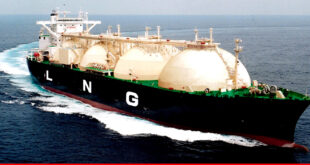Over the passage of time, the pharmaceutical industry has developed a strong base in Pakistan and has the capacity to add value to our export earnings considerably, however, friendly policies are essentially needed to achieve that goal besides enabling the industry to run on its capacity, which is unfortunately not being properly utilized due to various reasons.
To enhance export of pharmaceutical products, most of the companies needed international standard certification, which is mandatory and the government should come forward to facilitate the pharmaceutical industry to be well equipped with international standards with a motivation to promote countries export.
t is good to see that the overall business community under the flagship of the Federation of Pakistan Chambers of Commerce and Industry (FPCCI) has assured the government for all out efforts and support to make 2015 the year of economic survival of the country. With this background, the policy makers are expected to play the role of facilitator rather than creating impediment in the way of industry growth.
Pharmaceutical companies following Good Manufacturing Practices (GMP) to produce quality drugs are being forced to shut down their operations by Drug Regulatory Authority of Pakistan (DRAP) ,which is all set to enforce a hostile drug pricing policy on pharmaceutical industry.
Top local and multinational pharmaceutical companies, which are already making losses on many of their products yet providing relief to the patients, may follow the five multinational pharmaceutical companies who have shut down their plants during last few years due to unviable drug pricing and latest being Johnson & Johnson after MSD and OBS couple of years back.
According to sources, with DRAP proposing a further extension to price freeze since 2001 and introducing an average pricing formula in drug pricing policy, many pharmaceutical companies have conveyed to the government that they are contemplating to shut down their operations.
The industry stakeholders, which met the officials here in Islamabad conveyed their disappointment for not including any recommendation or regarding any of their input of last one and a half year which forced them to approach the judiciary.
‘The Drug Regulatory Authority of Pakistan (DRAP) of the country kept the pharmaceutical industry in dark while devising new drug policy, yet it claims transparency and proper consultation with the industry,’ the source added.
‘The authority did not consult with the stakeholders which is evident from the litigation they had to get involved in against the authority. Even then the authority completely disregarded the stakeholders and the court and sent the draft of the policy to the Prime Minister for approval,’ said a source in the pharmaceutical industry. He said it is quite ironic what DRAP claimed in the draft of the policy that it has been prepared with the consent of the stakeholders. ‘We don’t agree with many of the provisions of the policy as they would do more damage to the ailing industry than any benefits. The industry is not happy with the way the authority works,’ added the source. He said the officials of the authority did a patch work while formulating this policy and taken some things from Indian drug policy. “They should have adopted the whole Indian policy but they picked only those clauses beneficial to them. They don’t know that average pricing mechanism is recommended by World Health Organization (WHO) only for traders,” he reasoned.
The WHO document recommends average pricing is with reference to procurement of drugs in only public hospitals and rules applicable for purchasing from NGO like GAVI and supernational organizations. “How can you apply what is being done for a small segment of the market which is only around 3%, to 95% of market?” he questioned.
The industry has no issue with the controlled drugs but it demands relaxation in uncontrolled drugs. ‘DRAP has designed the policy in a way that would keep dragging low-priced drugs into hardship category. This should not be allowed because it would deny due profits to the pharmaceutical companies,’ he added.
The industry, he added, has long been asking for due price increase but the DRAP suggested freeze on drug prices until June 2016 in the policy and even after that there is a cap of 6% and 4% on non-scheduled and scheduled drugs. ‘This means if a company has three generics it will have to reduce its price by 30%,’ the source added.
He added that this essentially means a price reduction of 45% (15+30) on mostly MNC products, which will effectively make the exit of most [if not all] MNCs from Pakistan, thereby depriving patients of quality and new medicines. In other words, he added, the government will not recognize international agreements already signed by Pakistan to provide a 20-year protection on internationally recognized patents.
‘It would eliminate over 50 thousand jobs, impacting over half a million people, who not only are meaningfully employed but also enjoy a social net (health insurance, retirement benefits etc) provided by their employers,” said the source, adding that the whole exercise appears to be designed to force the industry to revert back to the DRAP to plead for price adjustments on the basis of ‘hardship’.
He said fixing the price of every drug separately is against the market fundamentals and brings only harsh regulations. ‘The industry in result suffers and their profits decrease, hence they decide against investing in such environment,’ reasoned the source, adding that thirteen to fourteen hundred applications are pending with the authority for price revision since last two years.
If DRAP could not decide on those applications, he asked, how it can handle more hardship cases as it suggested in the draft of the pricing policy. ‘Besides 30 percent reduction in non-scheduled drugs at the time when companies are already making drugs in loss would prove very damaging as it would vanish low-priced drugs from the market and because of this the masses will suffer,’ he added.
It is pertinent to mention that through a notification issued on November 28, 2013, the NHS Ministry increased the prices of drugs by 15%, but this increase was withdrawn the very next day when Prime Minister Nawaz Sharif took notice of the matter.
 PAGE Blog Business Weekly Magazine
PAGE Blog Business Weekly Magazine

